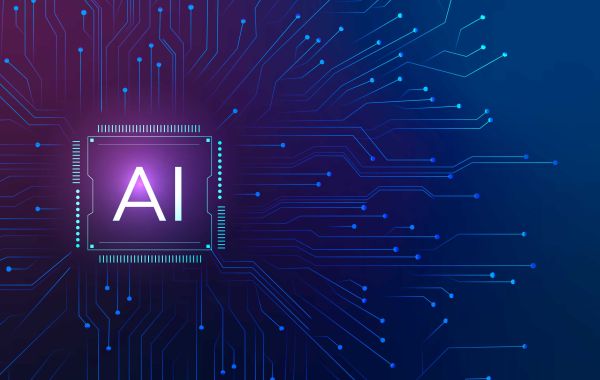The Role of AI in the Food Industry
AI technologies, such as machine learning, computer vision, and data analytics, are increasingly being integrated into the food industry to enhance various processes. These technologies are particularly beneficial for quality control and safety, as they can process vast amounts of data, identify patterns, and make real-time decisions. By leveraging AI, food manufacturers can ensure that their products meet stringent quality standards and comply with safety regulations.
Enhancing Food Quality Control
1. Automated Inspection and Sorting
One of the primary applications of AI in food quality control is automated inspection and sorting. Traditional methods rely on manual inspection, which can be inconsistent and subject to human error. AI-powered systems use computer vision and machine learning algorithms to analyze images of food products in real time. These systems can detect defects, foreign objects, and inconsistencies in shape, size, and color with high accuracy. Automated sorting ensures that only products meeting the desired quality standards proceed further down the production line, reducing the risk of substandard products reaching consumers.
2. Predictive Maintenance
AI in food industry also plays a crucial role in predictive maintenance of equipment. Food processing and packaging equipment must operate efficiently to maintain product quality. AI-powered predictive maintenance systems use sensors and data analytics to monitor equipment performance and predict potential failures before they occur. This proactive approach minimizes downtime, ensures consistent product quality, and reduces the risk of contamination due to equipment malfunctions.
3. Supply Chain Optimization
Quality control in the food industry extends beyond the production line to the entire supply chain. AI technologies can optimize supply chain operations by analyzing data from various sources, including suppliers, transportation, and storage facilities. AI-driven analytics can identify potential risks, such as temperature fluctuations or delays, that could affect product quality. By addressing these issues in real-time, food manufacturers can ensure that their products maintain their quality throughout the supply chain.
Ensuring Food Safety
1. Contaminant Detection
Food safety is paramount, and AI technologies are proving invaluable in detecting contaminants that could pose health risks to consumers. AI-powered systems can analyze samples for the presence of harmful substances, such as pathogens, pesticides, and allergens, with remarkable precision. These systems use advanced algorithms to process data from sensors and laboratory tests, providing rapid and accurate results. Early detection of contaminants allows for swift corrective actions, reducing the risk of foodborne illnesses.
2. Traceability and Transparency
AI in the food industry enhances traceability and transparency, which are critical for ensuring food safety. Blockchain technology, combined with AI, enables the creation of transparent and immutable records of every step in the food production and distribution process. This traceability allows consumers and regulators to track the origin and journey of food products, ensuring that safety standards are met at every stage. In the event of a contamination issue, traceability facilitates quick identification and removal of affected products from the market.
3. Compliance with Regulations
The food industry is subject to stringent regulations to ensure the safety and quality of products. AI technologies assist food manufacturers in complying with these regulations by continuously monitoring processes and documenting compliance. AI-powered systems can generate real-time reports and alerts, ensuring that any deviations from regulatory standards are promptly addressed. This proactive approach reduces the risk of non-compliance and associated penalties, safeguarding both consumers and manufacturers.
Case Studies and Success Stories
Several companies in the food industry have successfully implemented AI technologies to enhance quality control and safety. For instance, TOMRA Sorting Food, a leading provider of sorting solutions, uses AI-powered optical sorters to detect and remove defective products with exceptional accuracy. Similarly, IBM’s Food Trust blockchain platform, powered by AI, has been adopted by major retailers and food producers to ensure traceability and transparency in the supply chain.
Challenges and Future Prospects
While the benefits of AI in food quality control and safety are significant, there are challenges to overcome. Implementing AI technologies requires substantial investment in infrastructure and training. Additionally, integrating AI with existing systems and processes can be complex. Data privacy and security are also concerns, as the food industry deals with sensitive information.
Despite these challenges, the future of AI in the food industry looks promising. Advances in AI technologies, such as deep learning and edge computing, will further enhance the capabilities of quality control and safety systems. As AI becomes more accessible and affordable, more food manufacturers will adopt these technologies, leading to a safer and more efficient food supply chain.
Conclusion
AI in the food industry is revolutionizing quality control and safety, offering unparalleled accuracy, efficiency, and reliability. From automated inspection and predictive maintenance to contaminant detection and traceability, AI technologies are enhancing every aspect of food production and distribution. As the industry continues to evolve, AI will play an increasingly vital role in ensuring that food products meet the highest standards of quality and safety. By embracing AI, the food industry can build a safer and more transparent future, benefiting both consumers and manufacturers.








